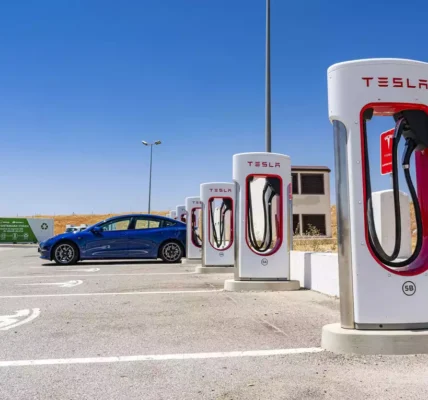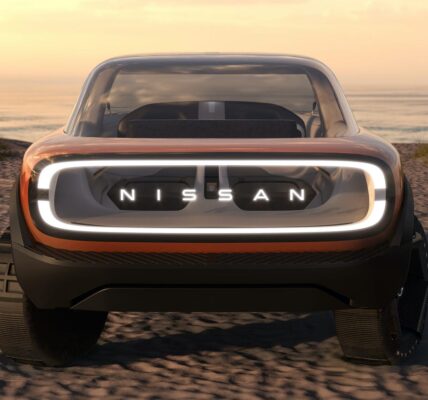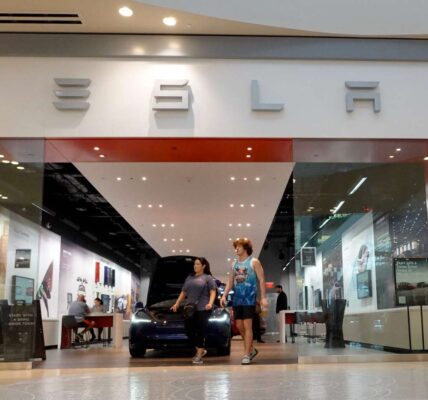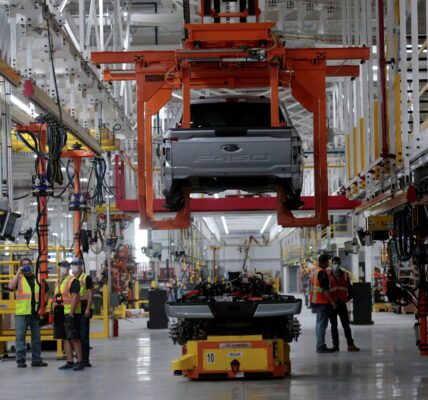The auto industry’s largest lobbying organization has come out against the Biden administration’s most ambitious climate change regulation, a proposed rule designed to ensure that two-thirds of new passenger cars sold in the United States are all-electric by 2032.
If implemented, the rule would be one of the strongest actions taken by any country to fight climate change. It would eliminate about seven billion tons of carbon dioxide from the atmosphere — the equivalent of taking all American vehicles off the road for four years — by compelling the auto industry to move away from the internal combustion engine that has powered cars for a century and commit to an electric future.
On Wednesday the Alliance for Automotive Innovation, which represents 42 car companies that produce about 97 percent of the new vehicles sold in the United States, wrote in public comments filed to the Environmental Protection Agency that the proposed rules are “neither reasonable nor achievable in thetime frame covered in this proposal.”
The Alliance wrote that the organization, whose members include General Motors, Ford, Stellantis, Volkswagen and Toyota, “does not believe they can be met without substantially increasing the cost of vehicles, reducing consumer choice, and disadvantaging major portions of the United States population and territory.”
Why It Matters: A major industry attacks a core Biden climate policy.
The proposed new car pollution regulation would be one of the Biden administration’s strongest weapons to fight climate change, if it is enacted as proposed and withstands legal challenges. That’s because emissions from vehicle tailpipes are the largest source of climate-warming pollution in the United States.
A 2021 report by the International Energy Agency found that nations would have to stop sales of new gasoline-powered cars by 2035 to keep average global temperatures from increasing 1.5 degrees Celsius (2.7 degrees Fahrenheit) above preindustrial levels. Beyond that point, scientists say, the effects of heat waves, flooding, drought, crop failures and species extinction would become significantly harder for humanity to handle.
“How green are electric cars?”
Have Climate Questions? Get Answers Here.
But last year, all-electric vehicles accounted for just 5.8 percent of new cars sold in the United States. Mr. Biden last year signed a law designed to encourage Americans to buy more electric vehicles by providing up to $7,500 in tax credits to purchasers, but many foreign-made vehicles aren’t eligible for the tax credits.
Experts say that the new regulation provides an essential stick to go with the carrot of the tax incentives. Achieving the administration’s goals could be harder if auto companies succeed in weakening the rule. The Environmental Protection Agency published its proposed rule earlier this spring and it is in the process of soliciting public comments ahead of finalizing and implementing the rule by the first half of next year.
The auto companies’ concerns are expected to influence the final rule, particularly as Mr. Biden campaigns for re-election in politically critical auto-making states like Michigan and Ohio.
Background: The latest in a long fight over the future of the car.
The pushback against the rule is the latest in a yearslong back-and-forth between Washington and the auto industry over climate pollution.
Former President Barack Obama first increased fuel-economy standards in an effort to jump-start a transition to electric vehicles, and secured grudging support from the country’s Big Three automakers at the time because his administration had just bailed them out of bankruptcy during the global economic crisis.
Later, President Donald J. Trump rolled back the Obama-era rules so much that even some automakers protested that he had gone too far. Since then, Mr. Biden has sought to reinstate and expand the Obama rules. In 2021 he signed an executive order pledging to pursue policies to ensure that at least half of all new cars sold in the United States are all-electric by 2030.
But his administration took the auto industry by surprise this spring with the proposed rule that went considerably further. His proposal aims for 67 percent of sales of new light-duty passenger vehicles, from sedans to pickup trucks, to be all-electric by 2032.
What’s Next: Will the E.P.A. lower its targets?
Biden administration regulators are expected to weigh public comments before revising and finalizing proposals. Historically, many proposed environmental rules have been loosened to accommodate industry concerns.
The auto-lobbying group said it doesn’t oppose all regulations designed to accelerate the transition to electric vehicles, but suggested in its comments that the Biden administration lower its target to 40 or 50 percent electric sales by 2030, rather than the 67 percent by 2032 proposed by the current rule.








